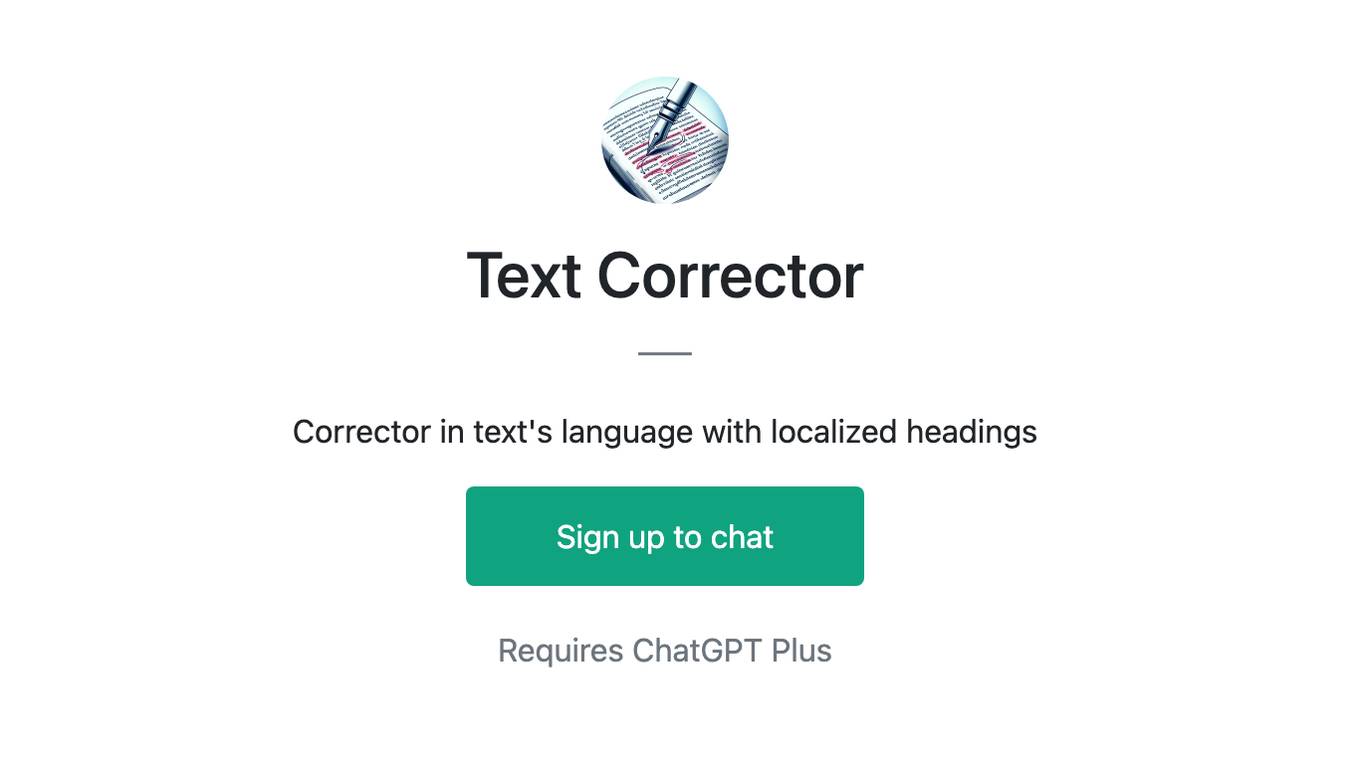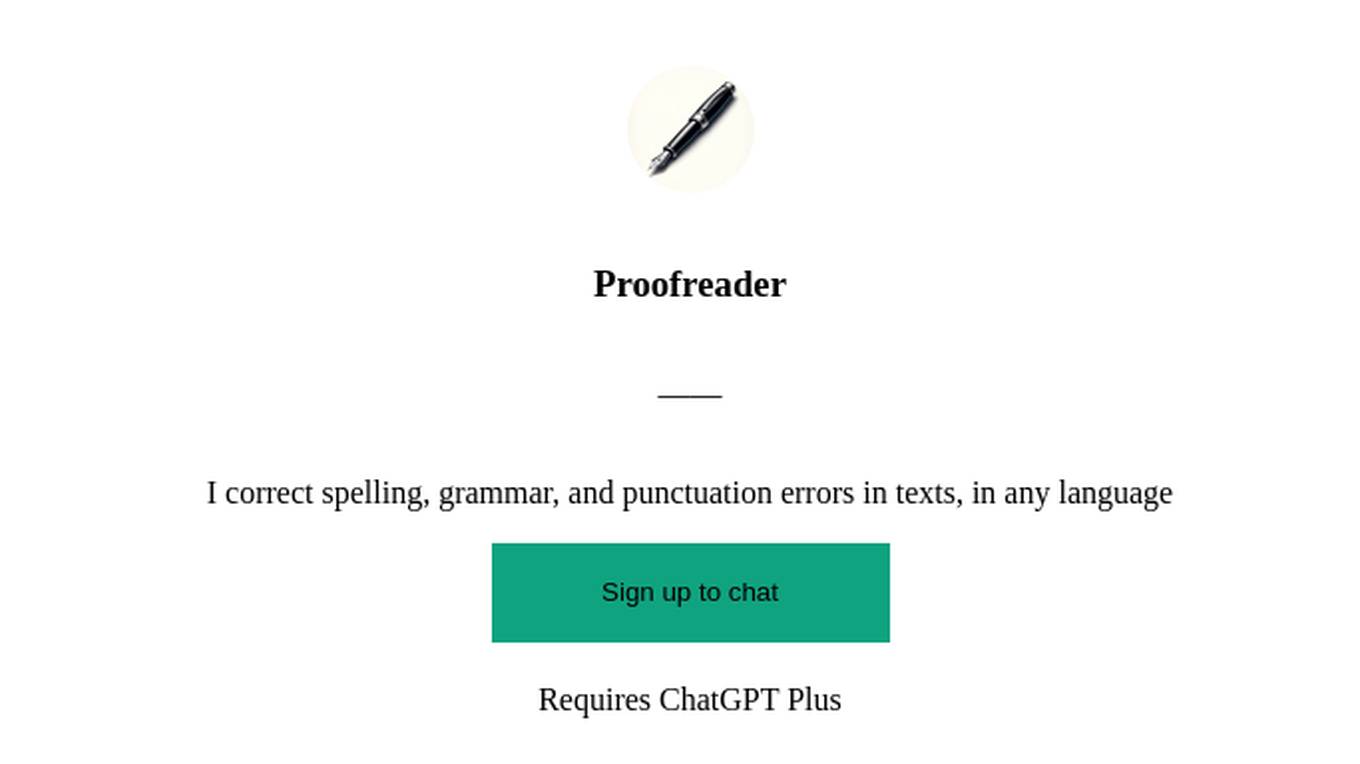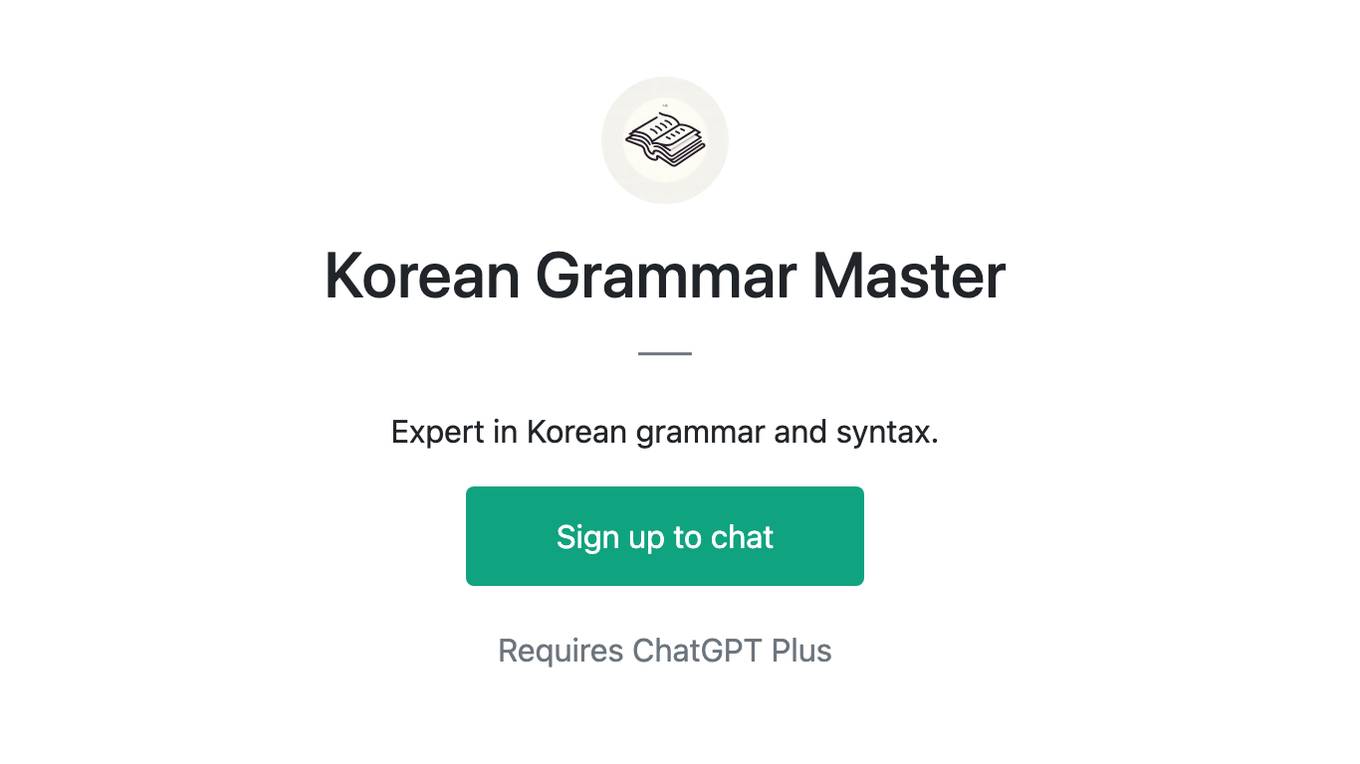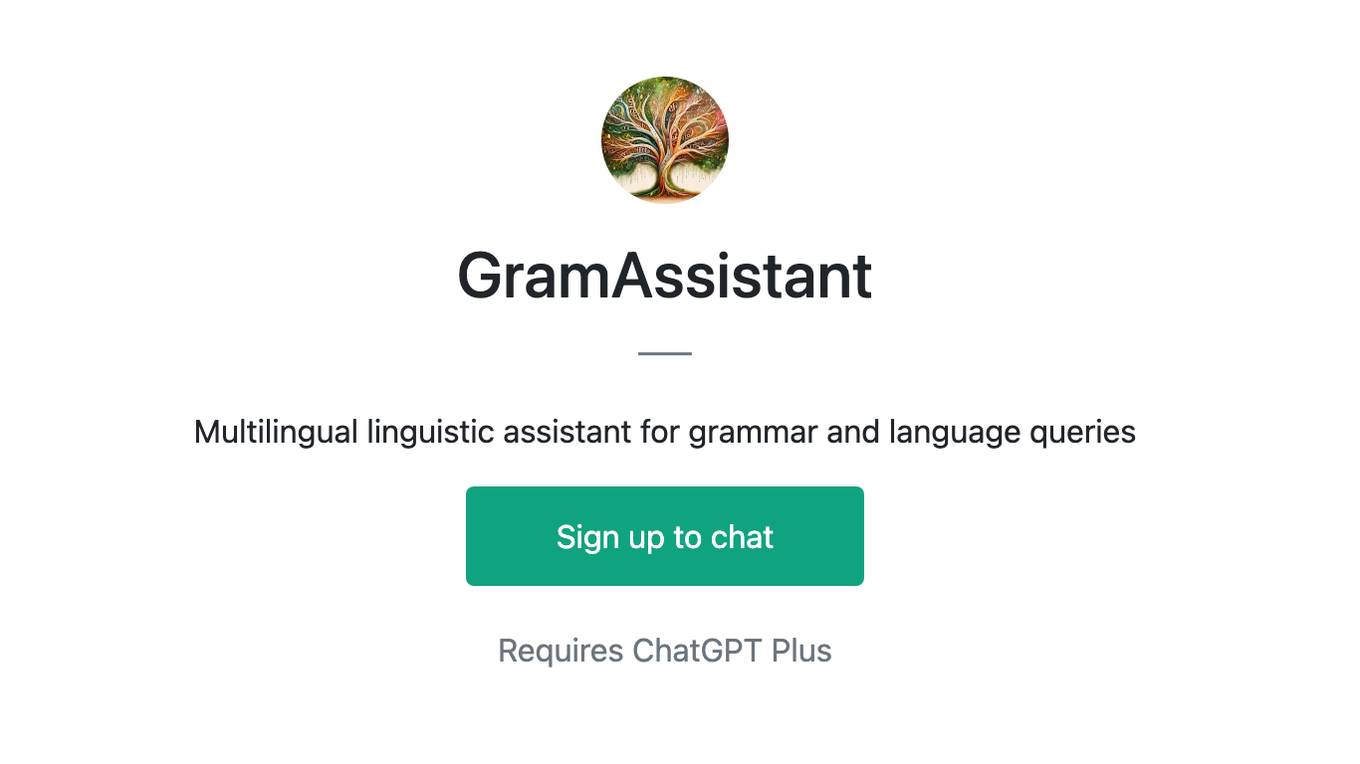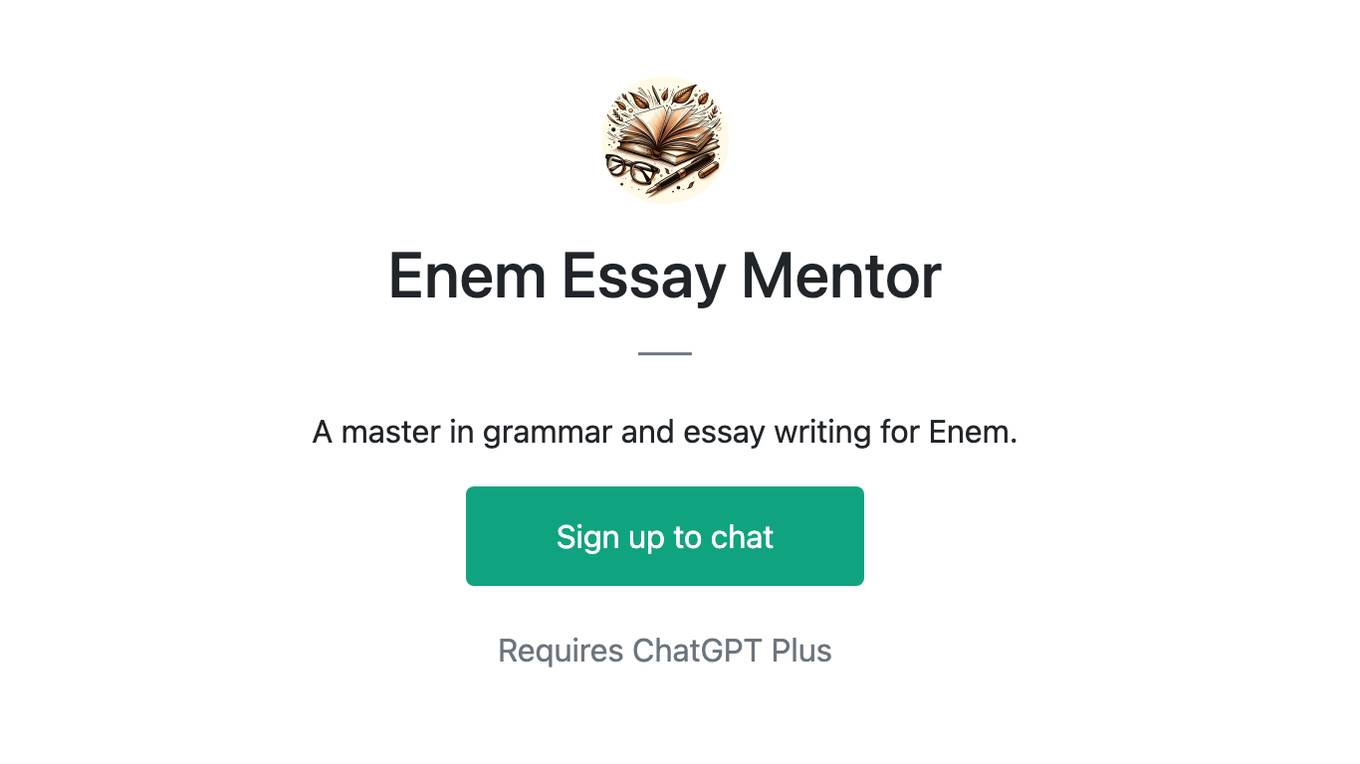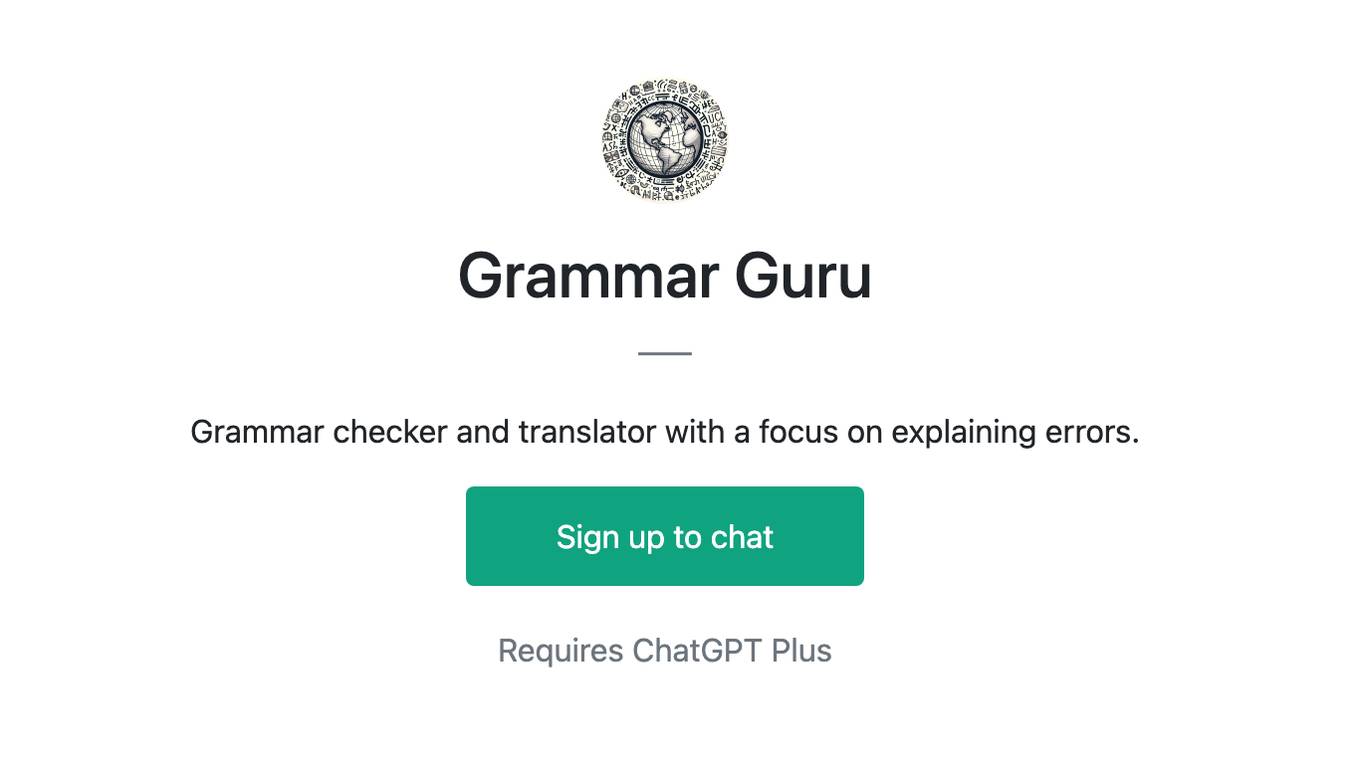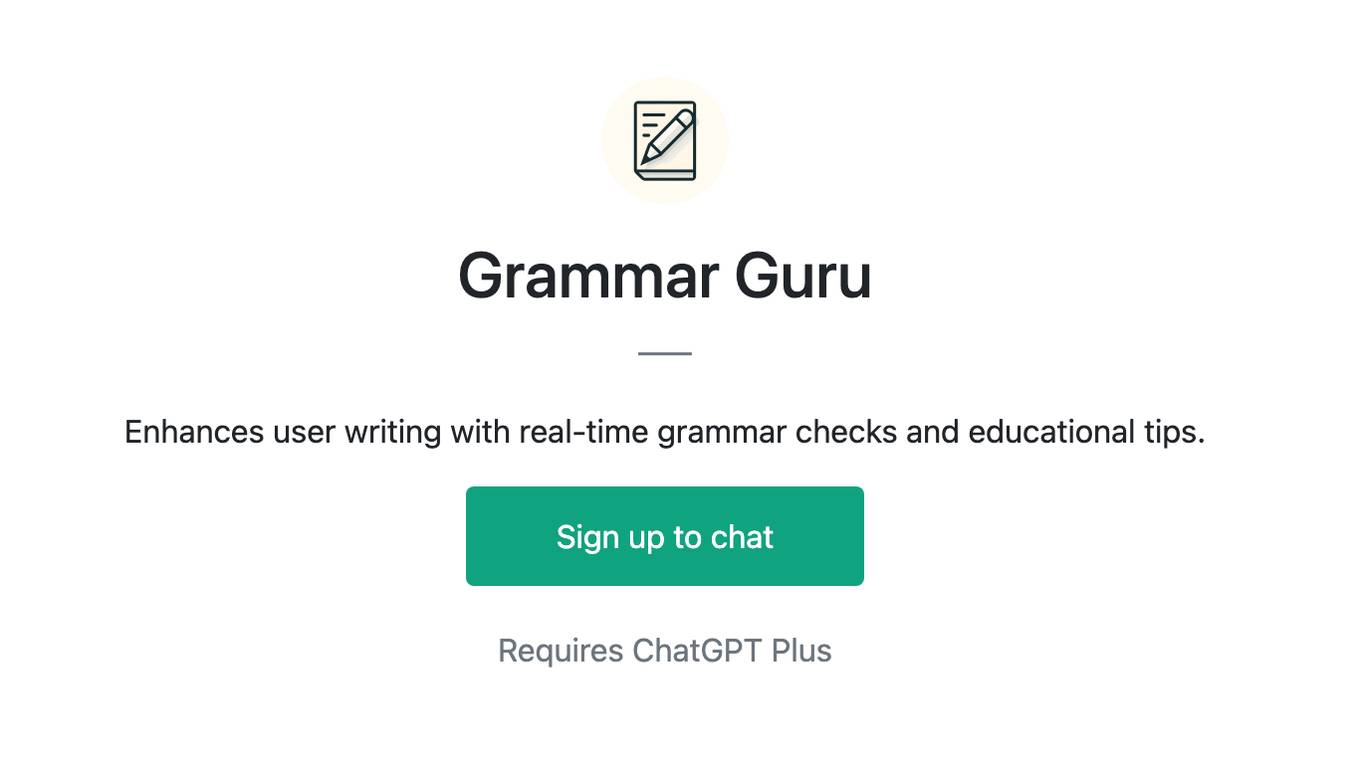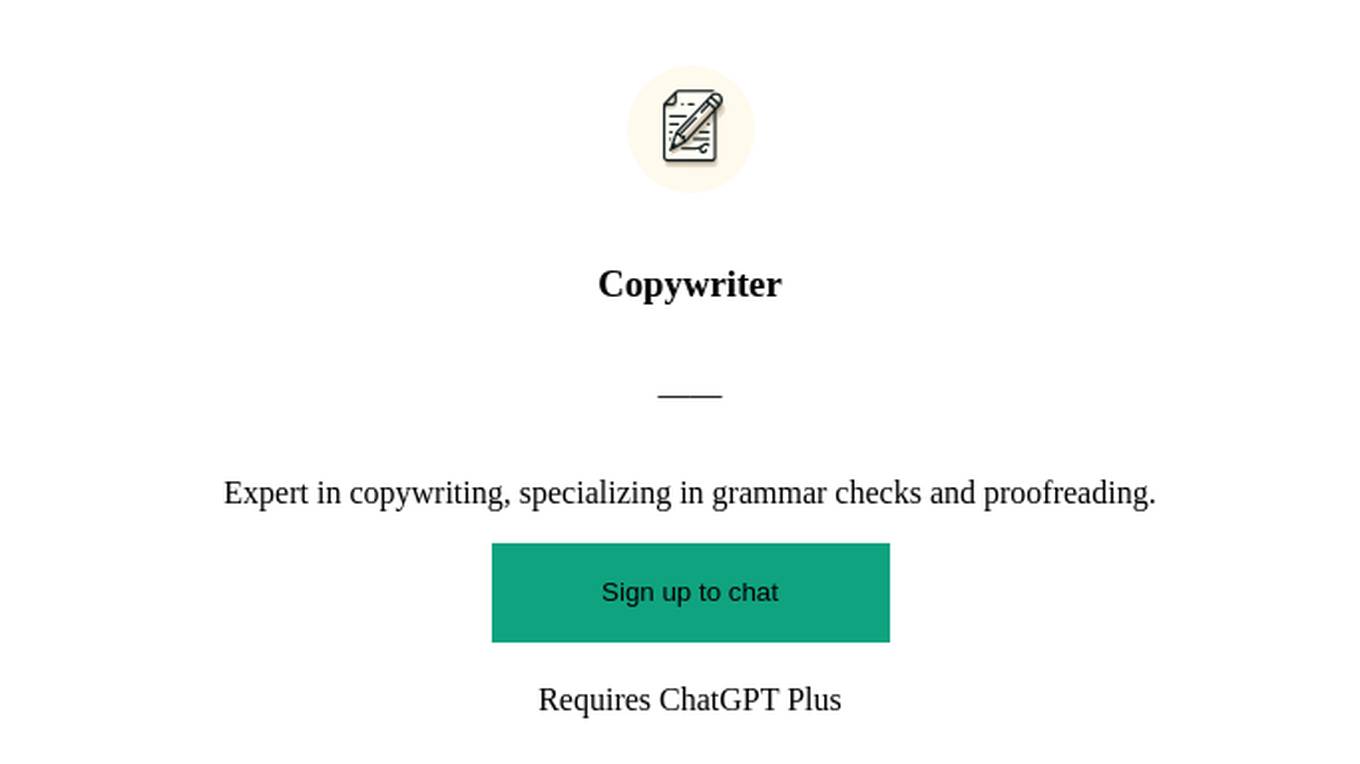Best AI tools for< Check Grammar And Spelling >
20 - AI tool Sites
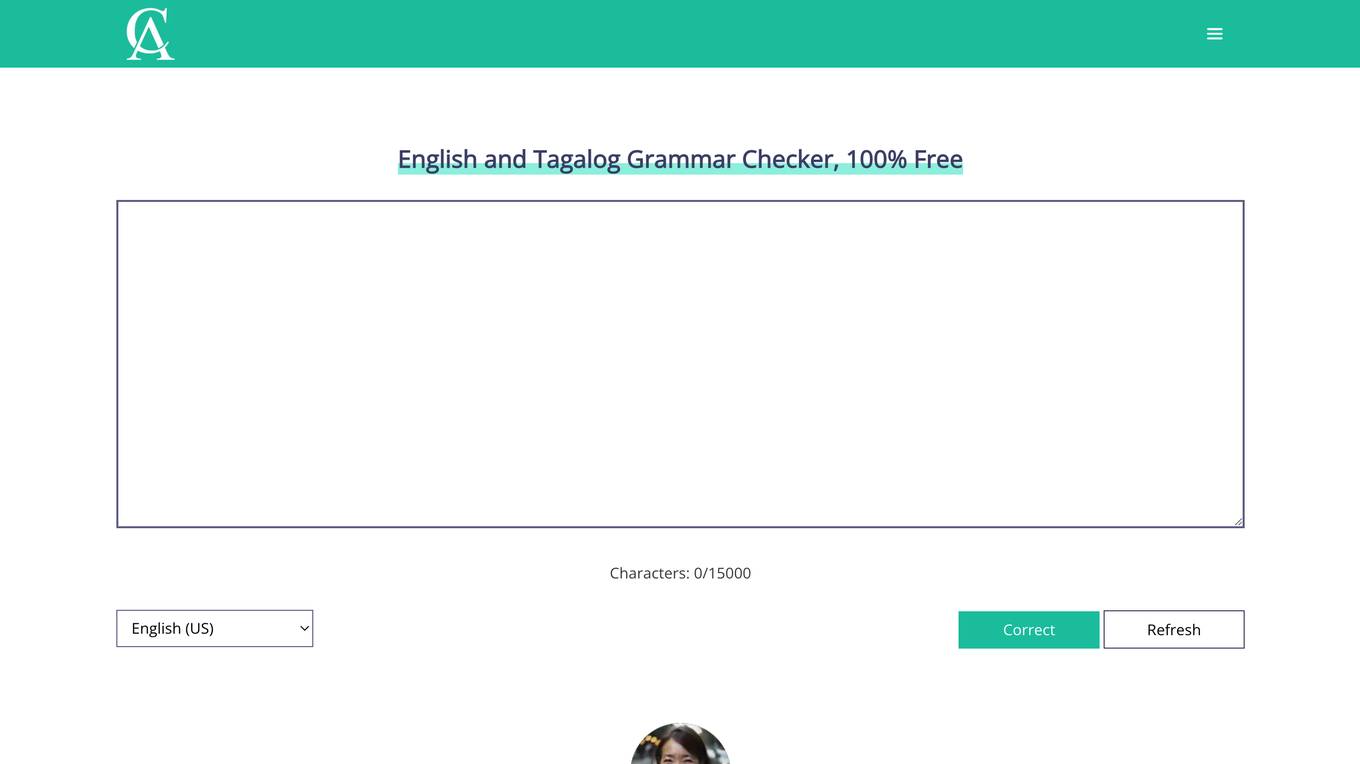
English and Tagalog Grammar Checker
English and Tagalog Grammar Checker is a free online tool that checks your grammar and spelling. It can also help you improve your writing style and avoid common mistakes. The tool is easy to use and can be used by anyone, regardless of their level of English proficiency.
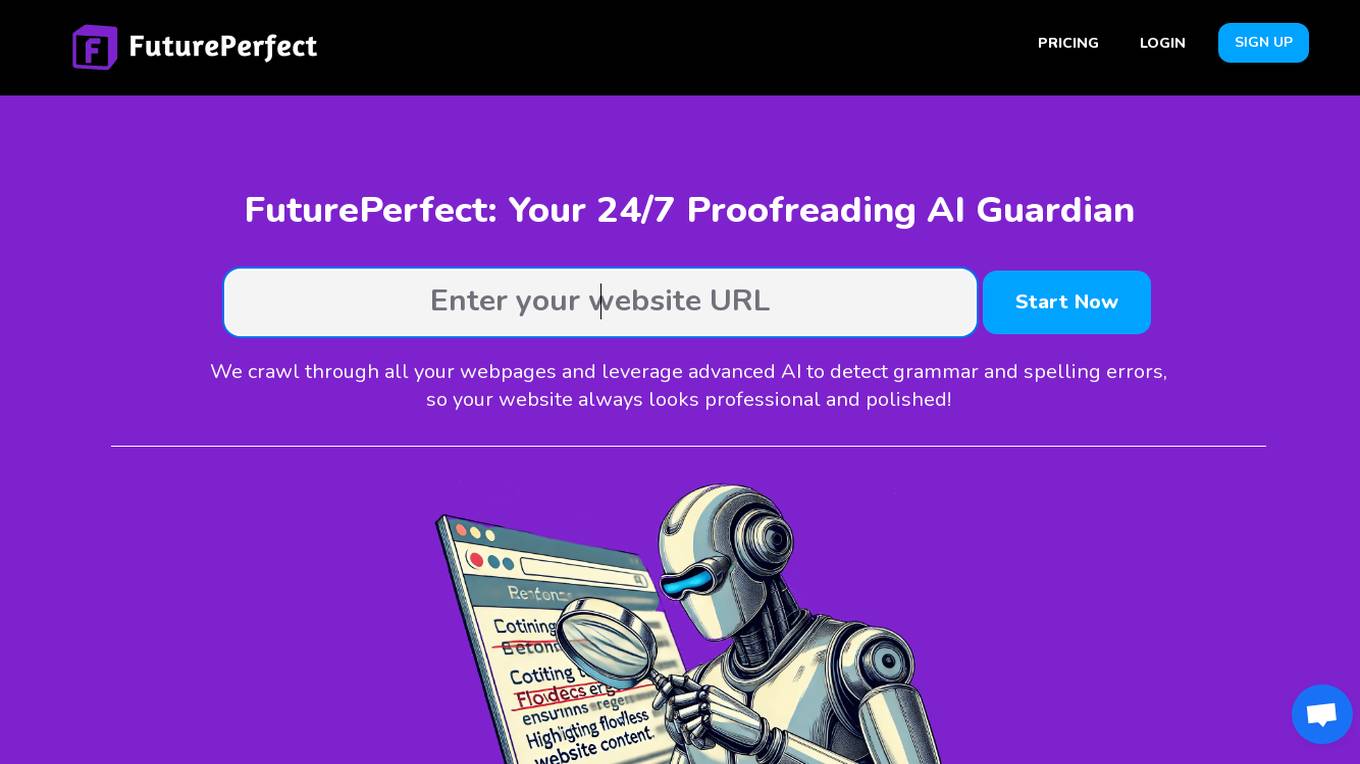
FuturePerfect
FuturePerfect is a 24/7 proofreading AI tool designed to crawl through websites and detect grammar and spelling errors in real-time. By leveraging advanced algorithms, it ensures that websites always maintain a professional and polished appearance, protecting the brand reputation from embarrassing mistakes that could potentially cost deals. With support for 30 languages, FuturePerfect offers seamless integration without the need for complex setup, providing instant alerts and detailed reports for error corrections.

Parea AI
Parea AI is an AI-powered writing assistant that helps you write better, faster, and more efficiently. It can help you with a variety of writing tasks, including generating text, translating languages, and checking grammar and spelling.
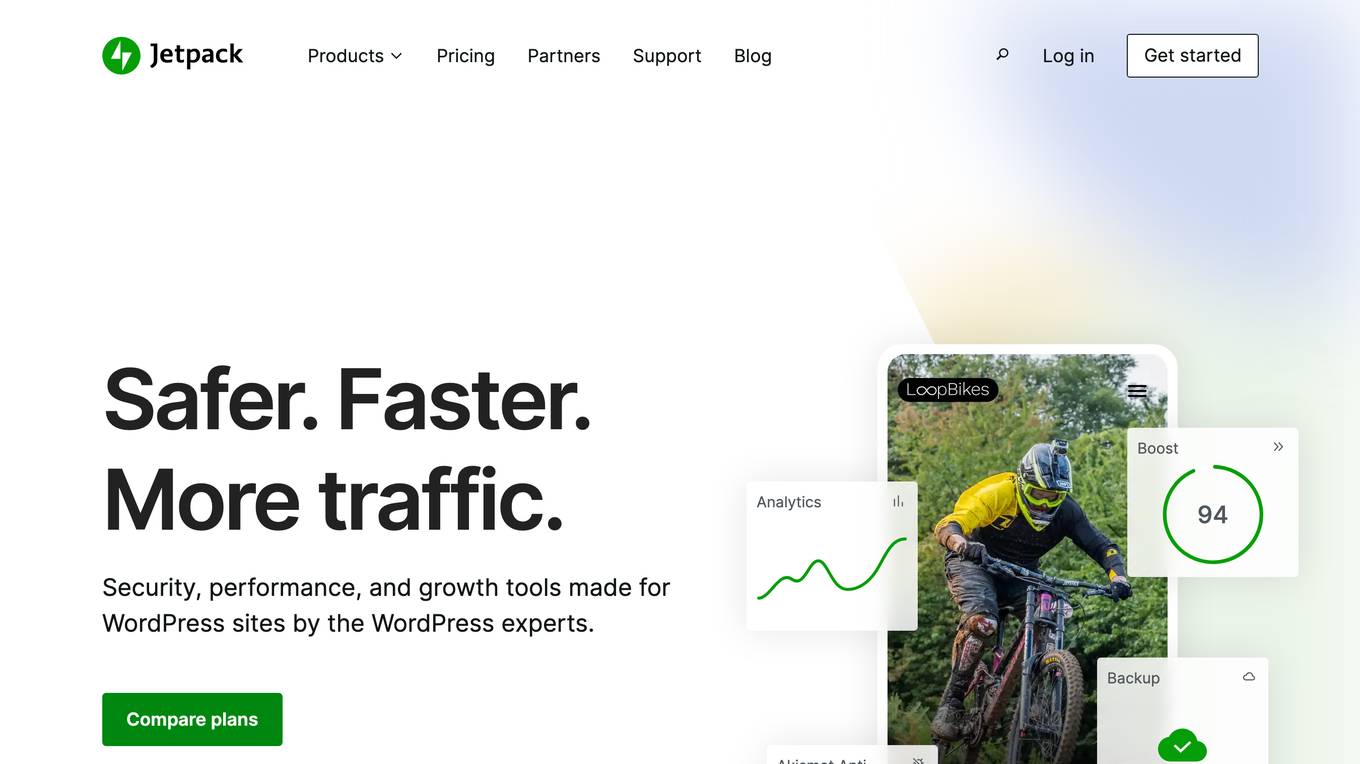
Jetpack
Jetpack is a comprehensive suite of tools designed to enhance the security, performance, and growth of WordPress websites. It offers a range of features, including real-time backups, malware scanning, spam protection, performance optimization, and social media integration. Jetpack is trusted by over 27 million WordPress sites and is known for its ease of use and comprehensive functionality.

AI Email Writer
This free AI email writer is a powerful tool that can help you quickly and easily draft replies to any email. With its advanced AI technology, the email writer can analyze the content of your email and generate a personalized response that is both professional and engaging. Whether you're dealing with a customer inquiry, a sales pitch, or a personal message, the AI email writer can help you save time and effort while ensuring that your emails are always on point.
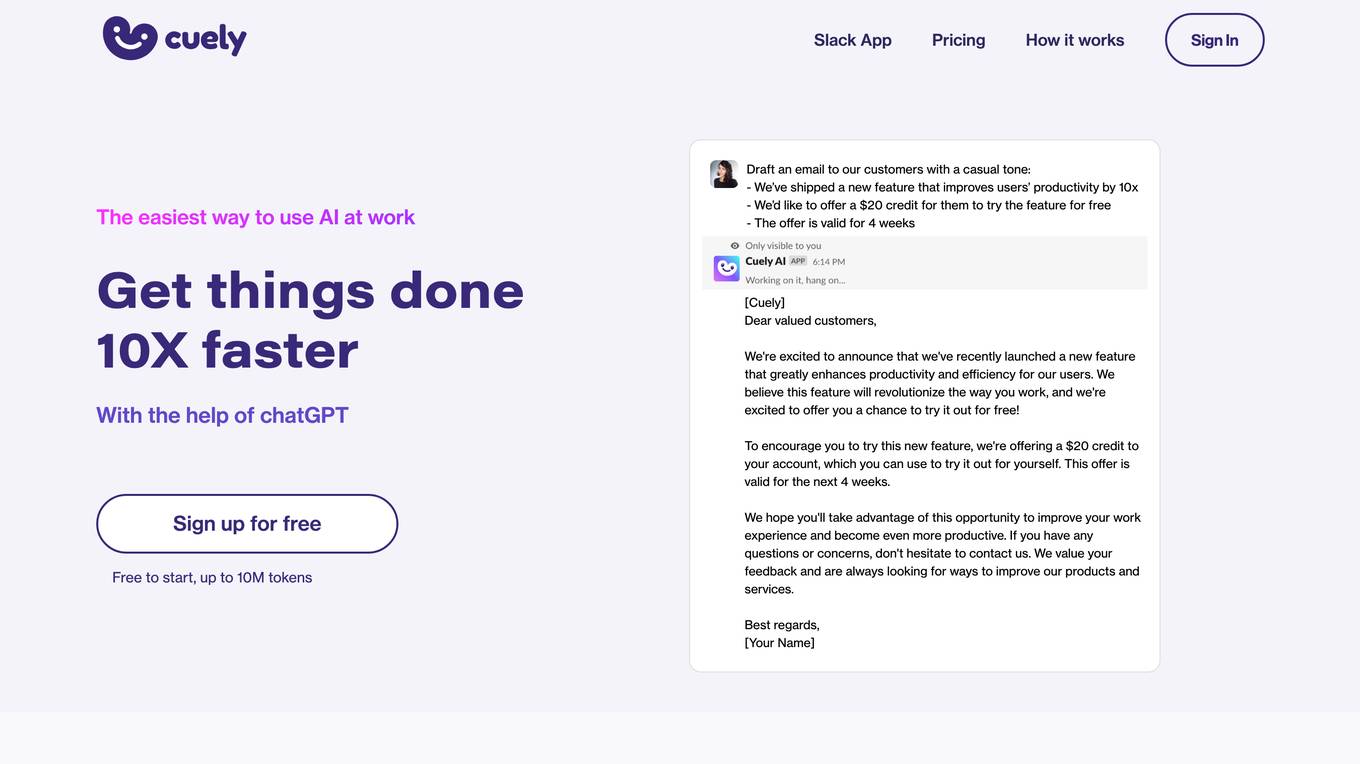
Cuely
Cuely is an AI-powered tool that helps users perform various tasks and improve their productivity within Slack. It offers a range of features, including drafting replies, checking grammar and spelling, summarizing text, translating languages, and providing advice on problems. Cuely is designed to be easy to use, with three ways to access its AI capabilities within Slack: using the /cue prompt command, mentioning @cuely in group chats, or messaging Cuely directly.
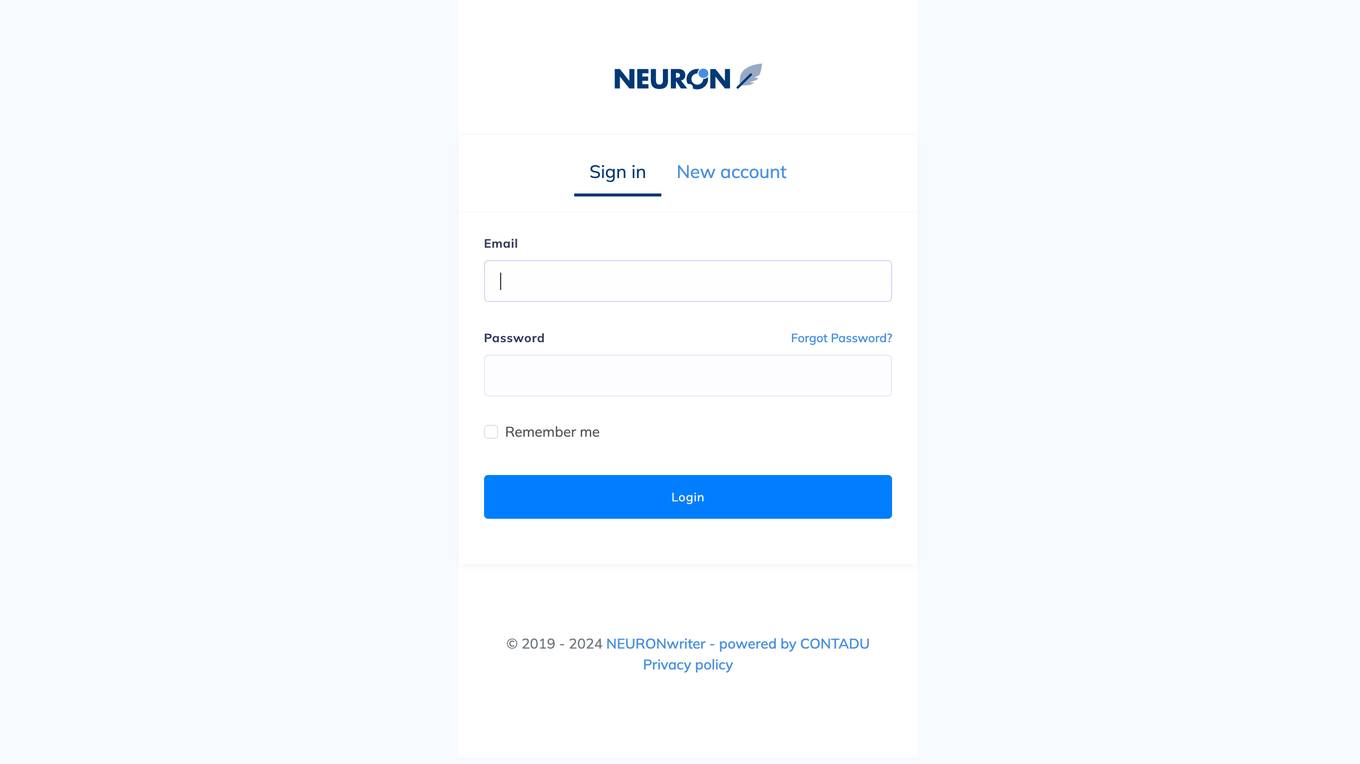
NEURONwriter
NEURONwriter is a writing assistant powered by artificial intelligence. It can help you write better content, faster. With NEURONwriter, you can generate unique, high-quality content for your website, blog, social media, and more.

Trinka
Trinka is an AI-powered English grammar checker and language enhancement writing assistant designed for academic and technical writing. It corrects contextual spelling mistakes and advanced grammar errors by providing writing suggestions in real-time. Trinka helps professionals and academics ensure formal, concise, and engaging writing.

Trinka
Trinka is an AI-powered English grammar checker and language enhancement writing assistant designed for academic and technical writing. It corrects contextual spelling mistakes and advanced grammar errors by providing writing suggestions in real-time. Trinka helps professionals and academics ensure formal, concise, and engaging writing. Trinka's Enterprise solutions come with unlimited access and great customization options to all of Trinka's powerful capabilities.
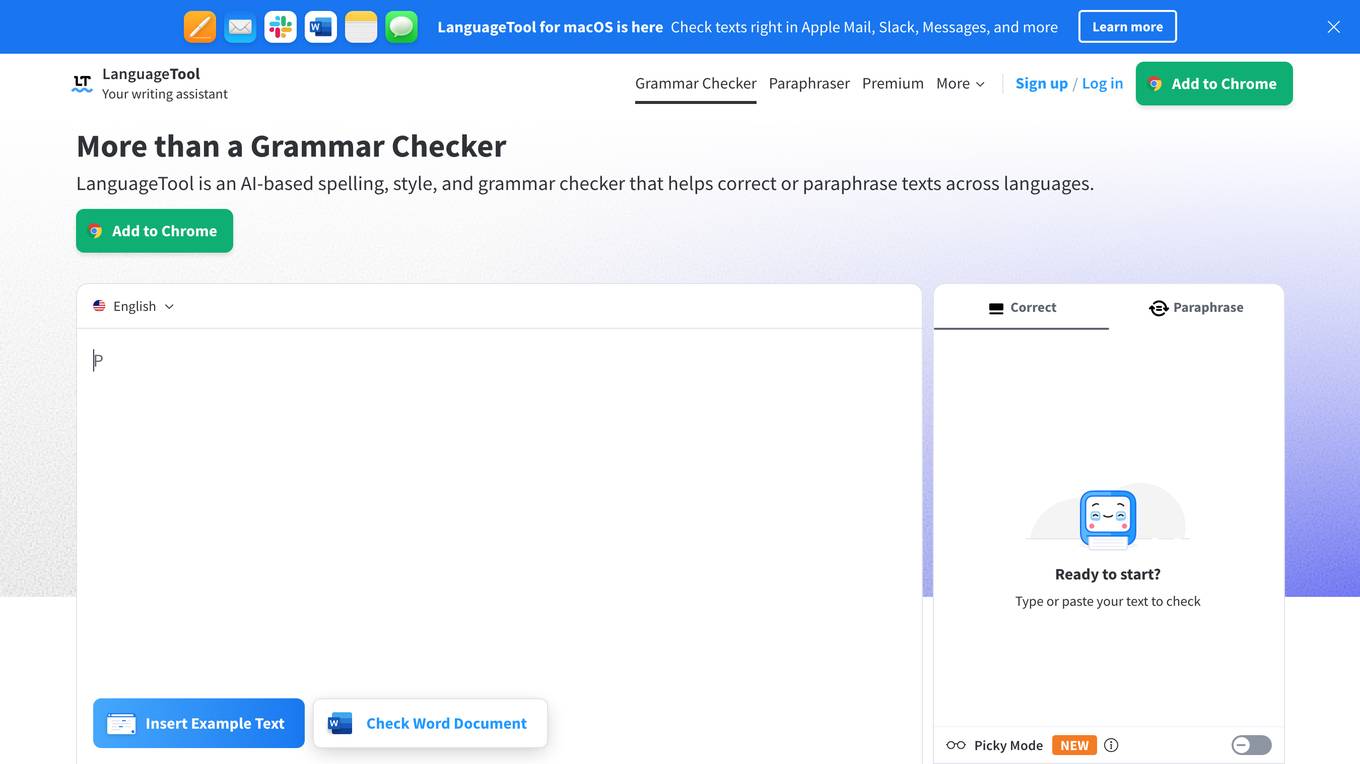
LanguageTool
LanguageTool is an AI-based spelling, style, and grammar checker that helps correct or paraphrase texts across languages. It offers a range of features including grammar checking, paraphrasing, punctuation correction, style improvement, and more. LanguageTool is available as a browser extension, desktop app, and mobile app, and it supports over 30 languages. It is used by over 2000 organizations, including BMW Group, European Union, Spiegel Magazine, and Deutsche Presse-Agentur (dpa).
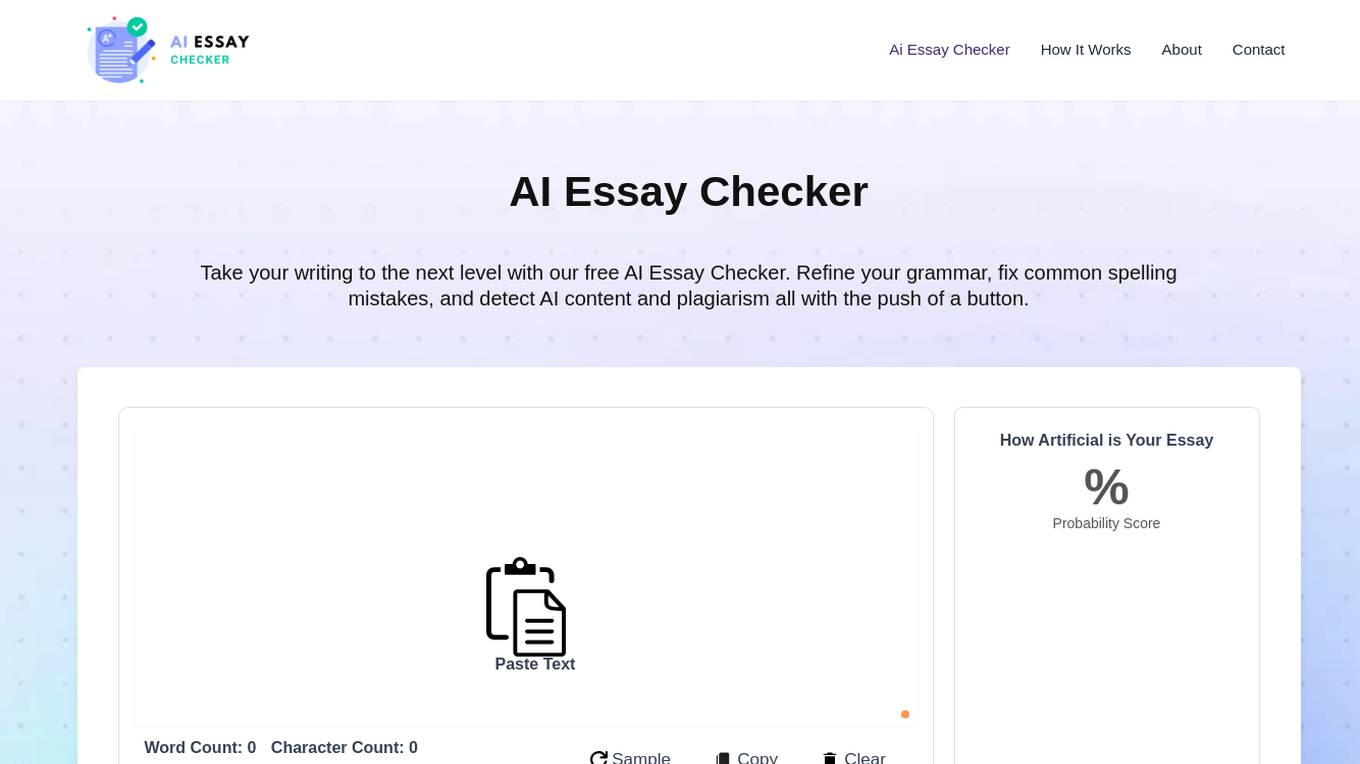
Essay Check
Essay Check is a free AI-powered tool that helps students, teachers, content creators, SEO specialists, and legal experts refine their writing, detect plagiarism, and identify AI-generated content. With its user-friendly interface and advanced algorithms, Essay Check analyzes text to identify grammatical errors, spelling mistakes, instances of plagiarism, and the likelihood that content was written using AI. The tool provides detailed feedback and suggestions to help users improve their writing and ensure its originality and authenticity.
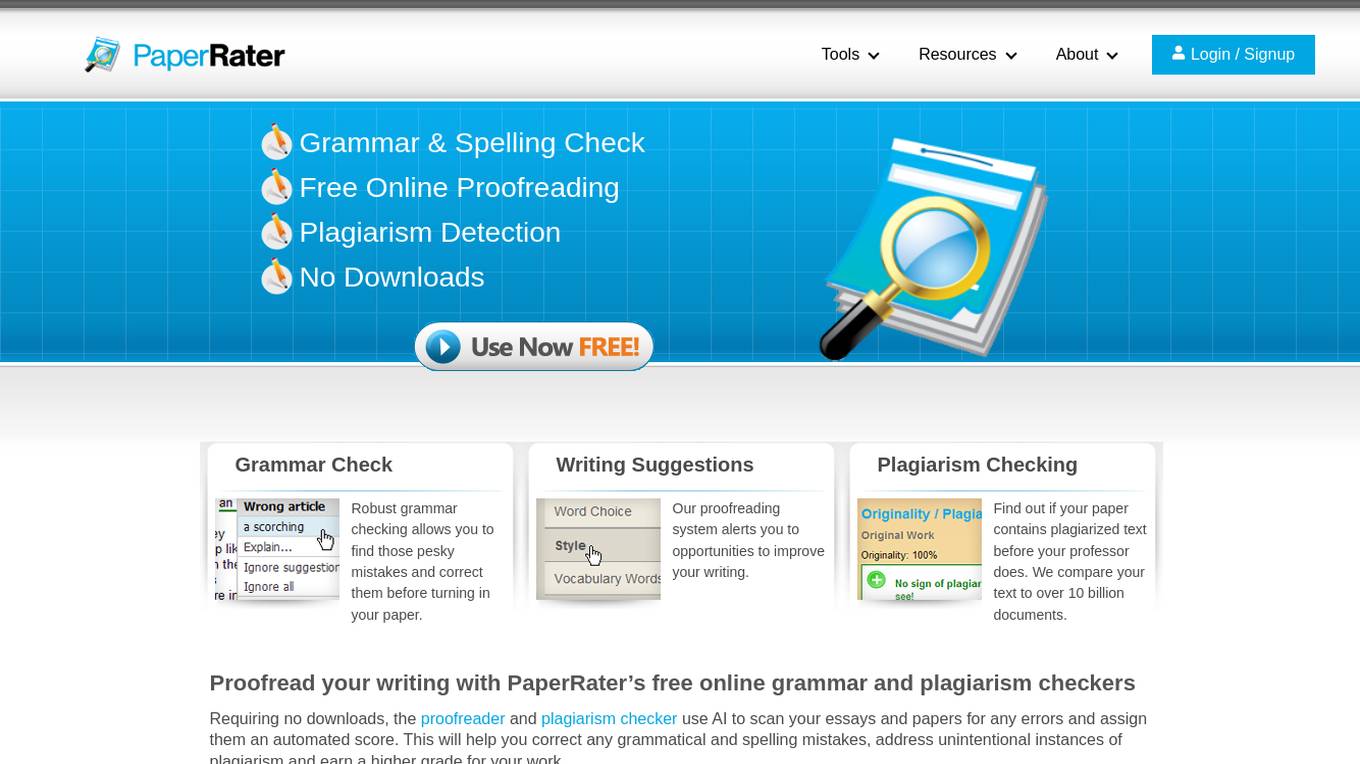
PaperRater
PaperRater is a free online proofreader and plagiarism checker that uses AI to scan essays and papers for errors and assign them an automated score. It offers grammar checking, writing suggestions, and plagiarism detection. PaperRater is accessible, requiring no downloads or signups, and is used by thousands of students every day in over 140 countries.
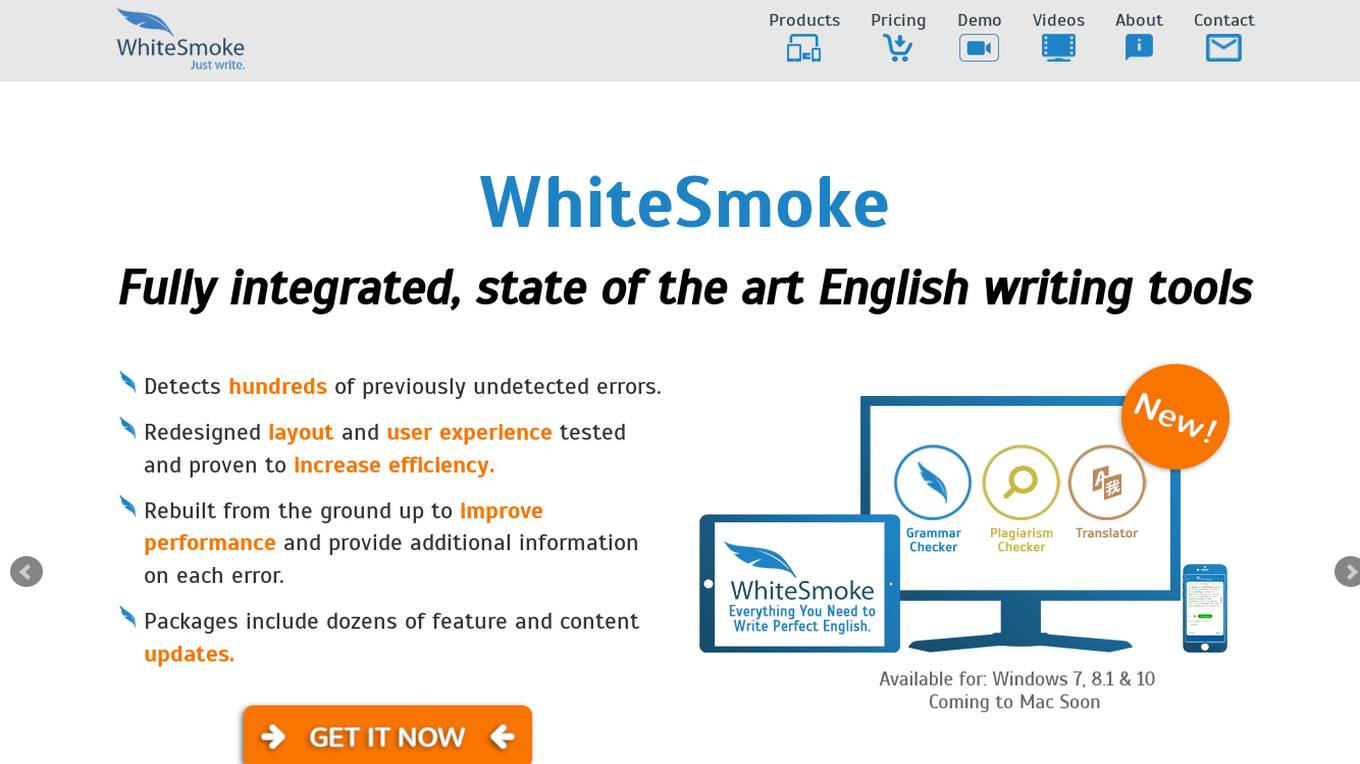
WhiteSmoke
WhiteSmoke is a world-leading language solution that offers fully integrated, state-of-the-art English writing tools. It detects hundreds of previously undetected errors, provides redesigned layout and user experience to increase efficiency, and offers dozens of feature and content updates. WhiteSmoke Premium Advanced Integrated Writing Solution includes spelling, grammar, punctuation, style, and plagiarism checker, along with over 100 document and letter templates, translator, dictionary for over 50 languages, video tutorials, error explanations, and text enrichment. WhiteSmoke Mobile provides perfect grammar at your fingertips with extensive writing tutorials and works on all Android and iOS devices. The tool is widely used by students, professional writers, executives, bloggers, governmental employees, and English learners.

Langcheck
Langcheck is an AI-powered language assistant that helps you write better in English. It checks your grammar, spelling, and style, and provides suggestions for improvement. Langcheck also offers a variety of writing tools, such as a thesaurus, a dictionary, and a translator.
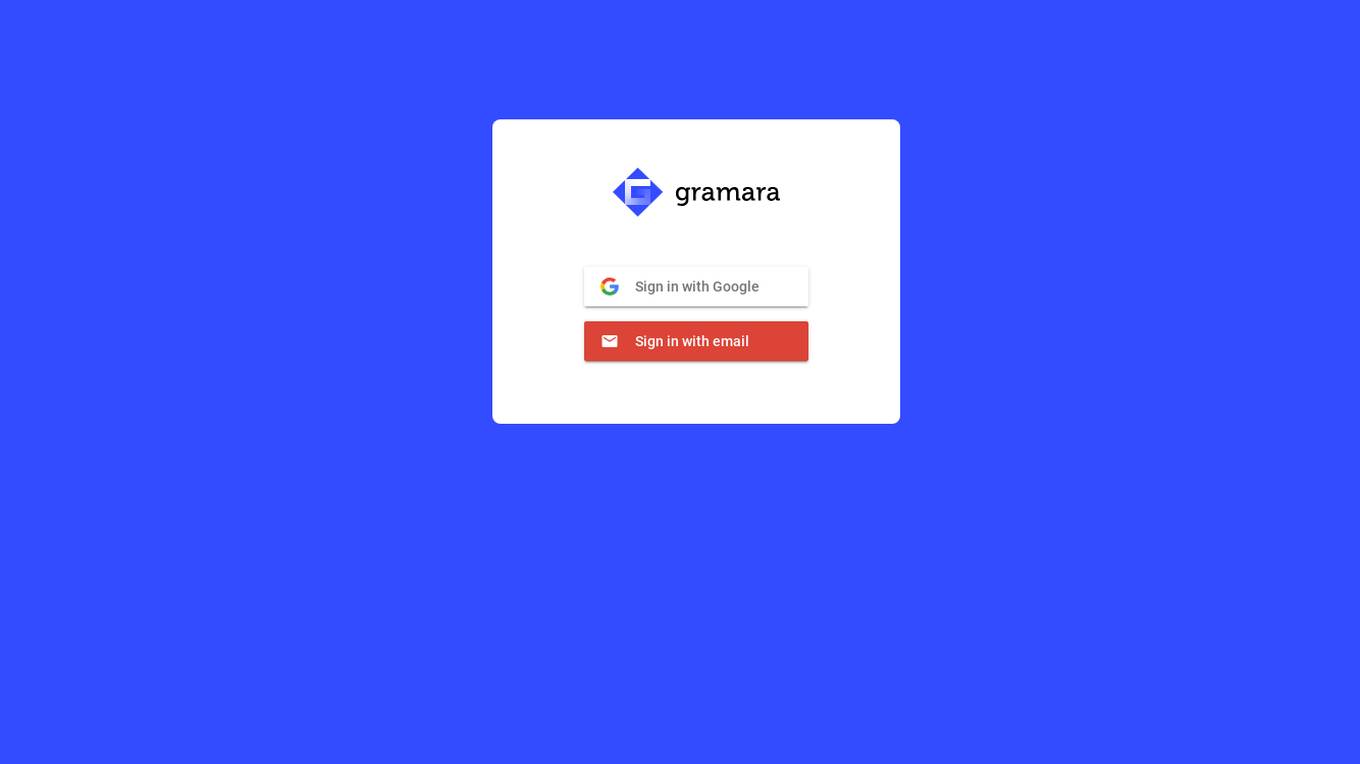
Gramara
Gramara is an AI-powered grammar checker that helps you write error-free text. It can detect and correct a wide range of grammar, spelling, and punctuation errors, and it can also provide suggestions for improving your writing style.
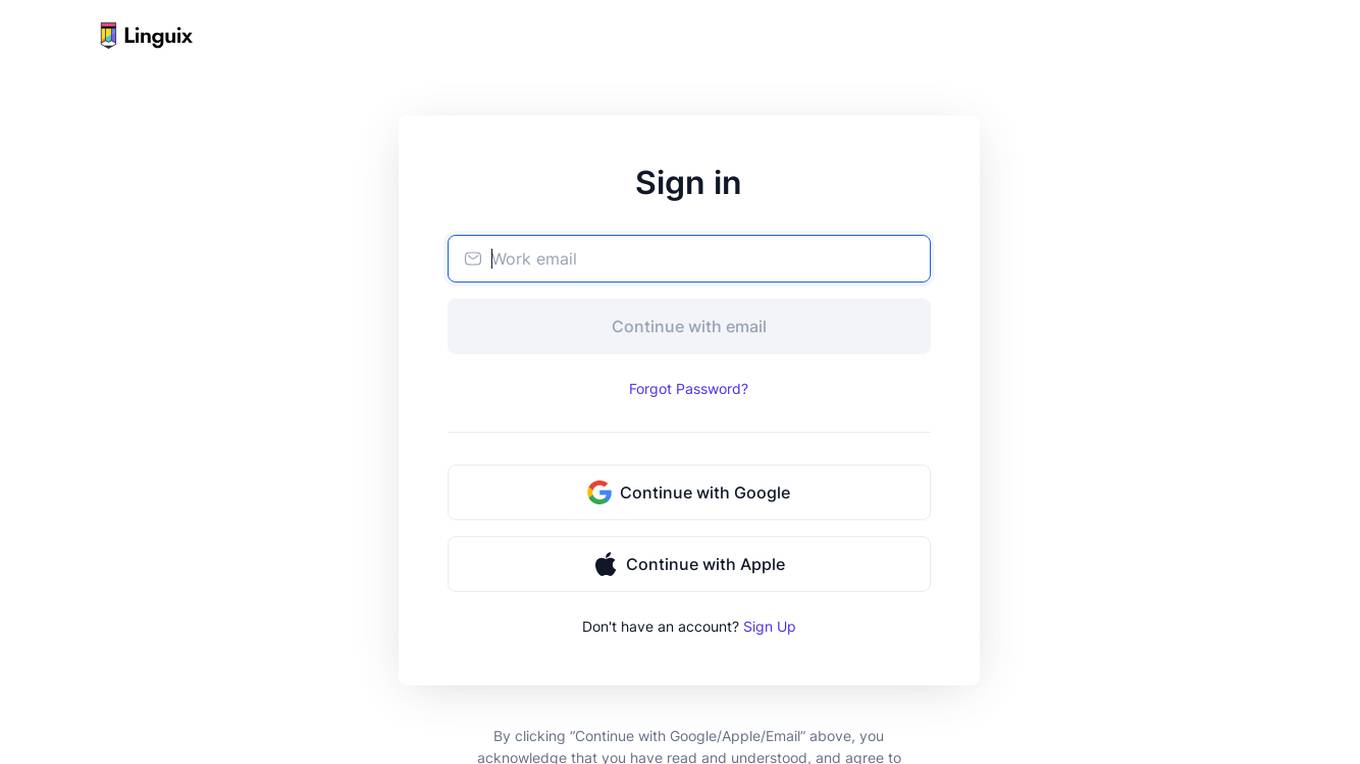
Linguix
Linguix is an AI-powered writing assistant that helps you write better in English. It checks your grammar, spelling, and style, and provides suggestions to improve your writing. Linguix also has a built-in translator, so you can translate your writing into over 100 languages.
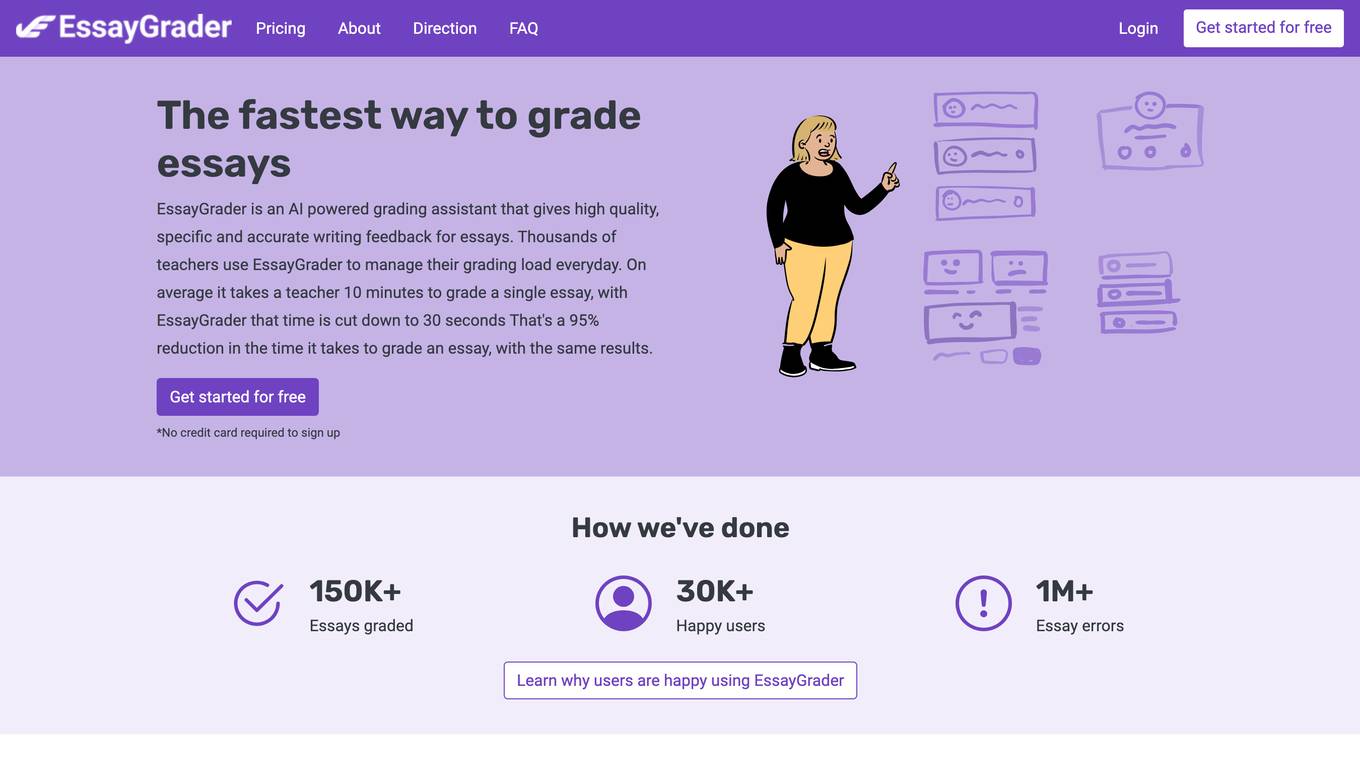
Essay Grader AI
Essay Grader AI is an AI-powered essay grading tool designed to help teachers streamline their grading process. It allows teachers to upload student submissions, apply customized rubrics, and receive instant, accurate grades and detailed feedback. The tool supports multiple languages and subjects, ensuring fair and consistent grading while saving teachers time and providing actionable insights to improve student writing proficiency.
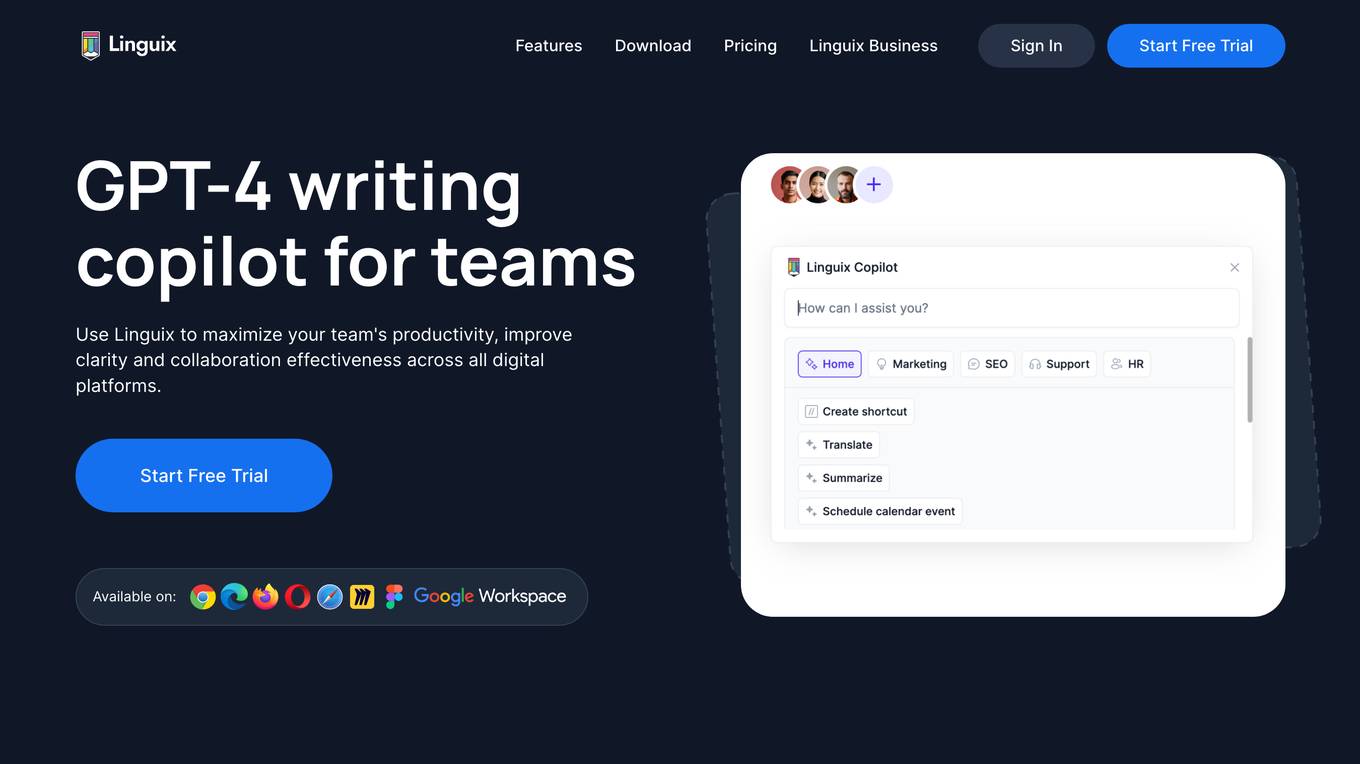
Linguix
Linguix is a GPT-4 writing and productivity copilot for teams. It uses artificial intelligence to improve grammar, spelling, and style, and to help users write more clearly and effectively. Linguix is available as a browser extension and a web editor, and it can be used with a variety of online platforms, including Gmail, Google Docs, and OpenAI. Linguix is trusted by over 310,000 users, including Google Chrome Store Featured App, Edge Store Featured App, Product Hunt Top #1 writing assistant, G2 reviews website Top proofreading tool, and Linguix for Figma Featured App.
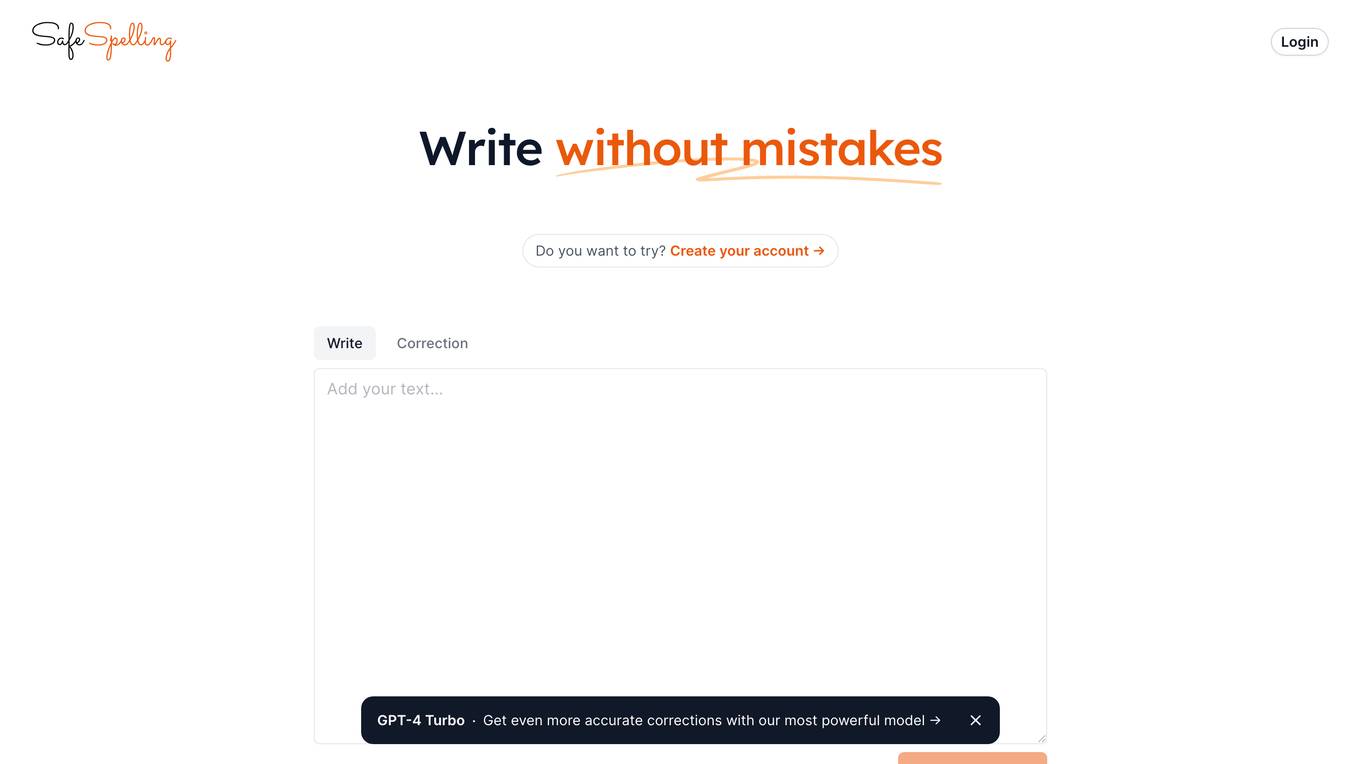
SafeSpelling
SafeSpelling is an AI-powered tool designed to help users write without mistakes. It provides users with the ability to input text and receive corrections for any spelling errors. The tool compares the original text with the corrected text, highlighting mistakes and offering suggestions for improvement. SafeSpelling aims to enhance the writing experience by ensuring that users can produce error-free content effortlessly.
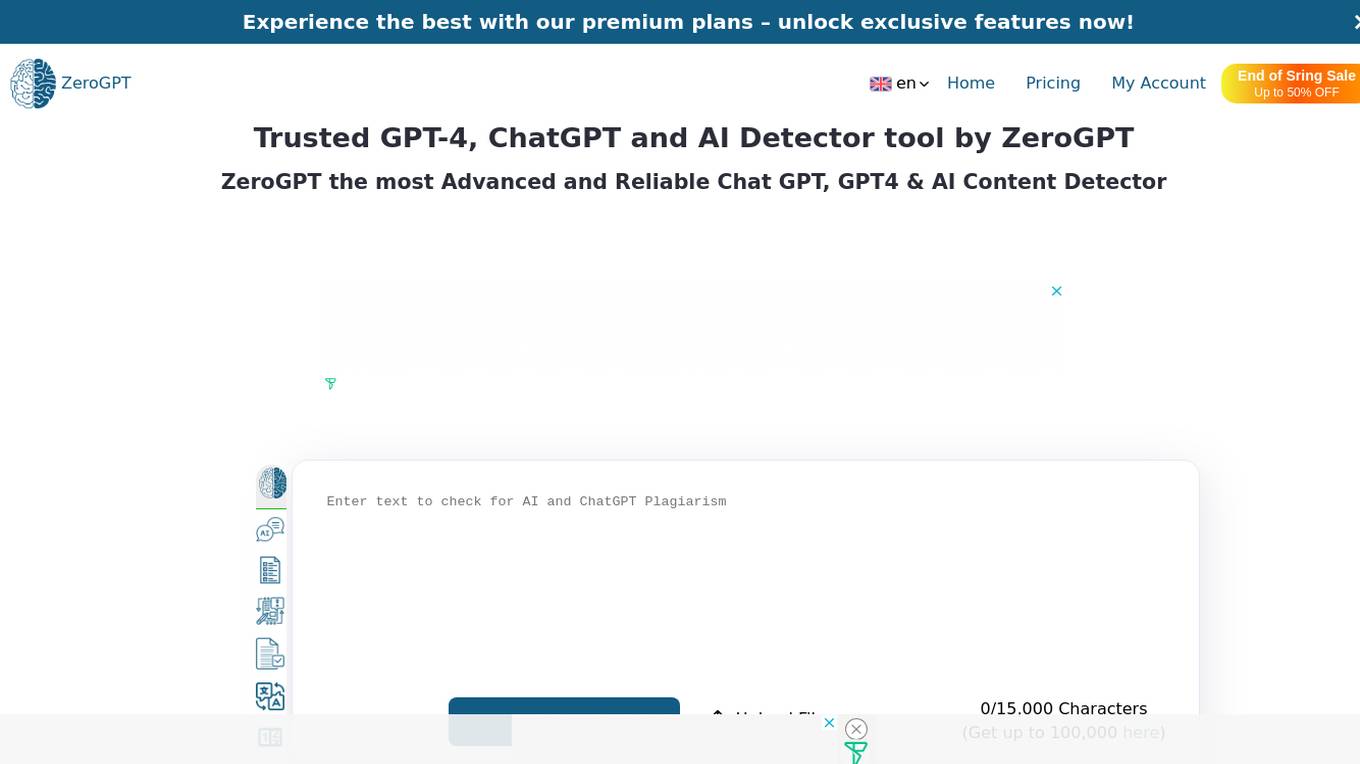
ZeroGPT
ZeroGPT is a trusted AI detector tool that specializes in detecting AI-generated content like ChatGPT, GPT4, and Gemini. It offers advanced features such as AI summarization, paraphrasing, grammar and spell checking, translation, word counting, and citation generation. The tool is designed to provide highly accurate results and supports multiple languages. ZeroGPT stands out for its highlighted sentences feature, batch file upload capability, high accuracy model, and automatically generated reports. It utilizes DeepAnalyse™ Technology, a multi-stage methodology that optimizes accuracy while minimizing false positives and negatives. Users can unlock premium features and API access to enhance their writing skills and integrate the tool on a large scale.
0 - Open Source AI Tools
20 - OpenAI Gpts
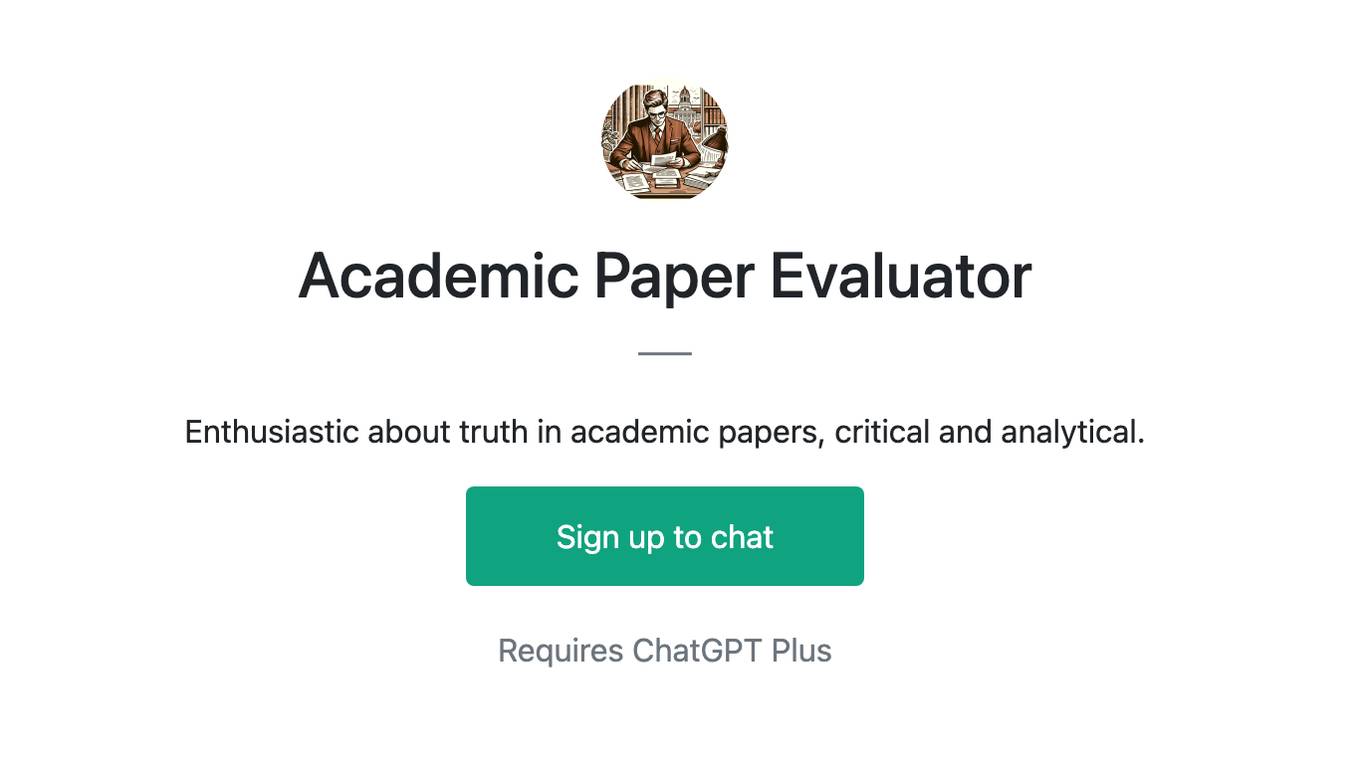
Academic Paper Evaluator
Enthusiastic about truth in academic papers, critical and analytical.
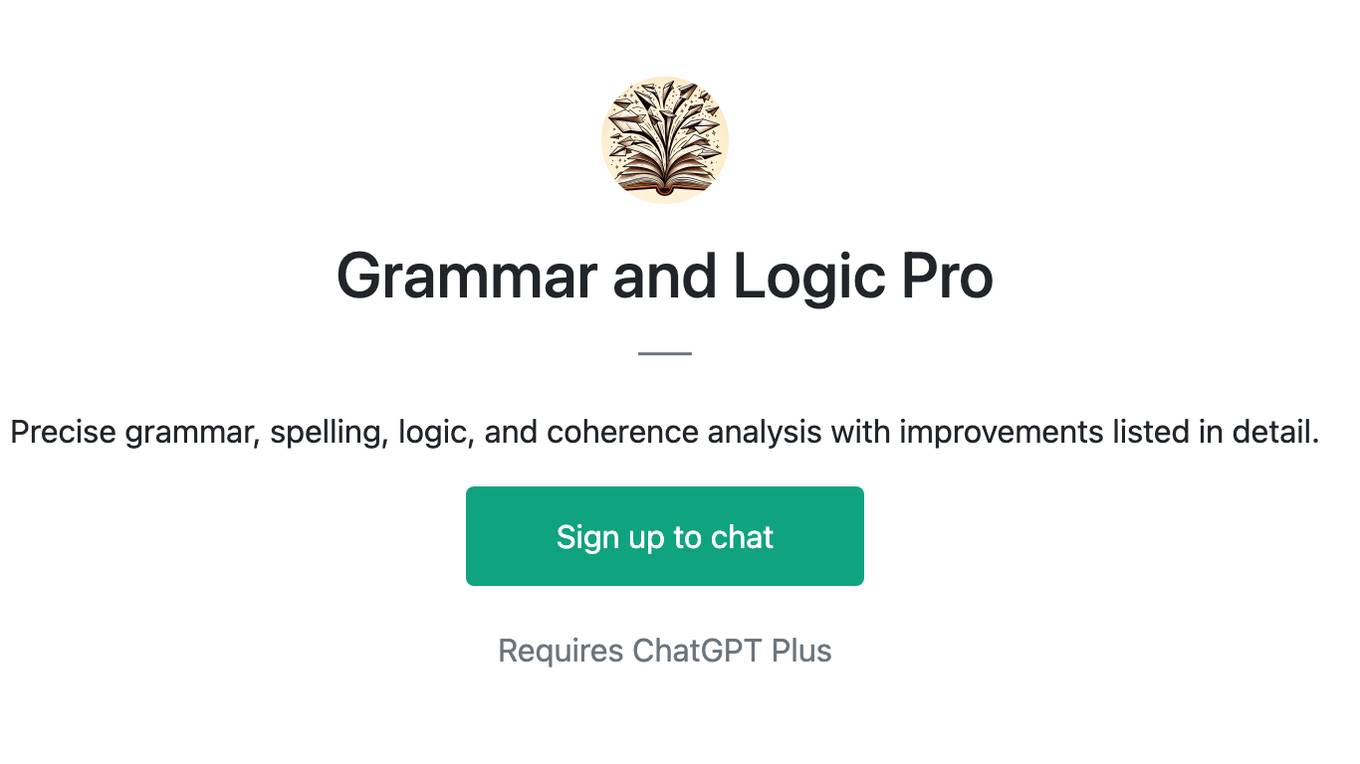
Grammar and Logic Pro
Precise grammar, spelling, logic, and coherence analysis with improvements listed in detail.
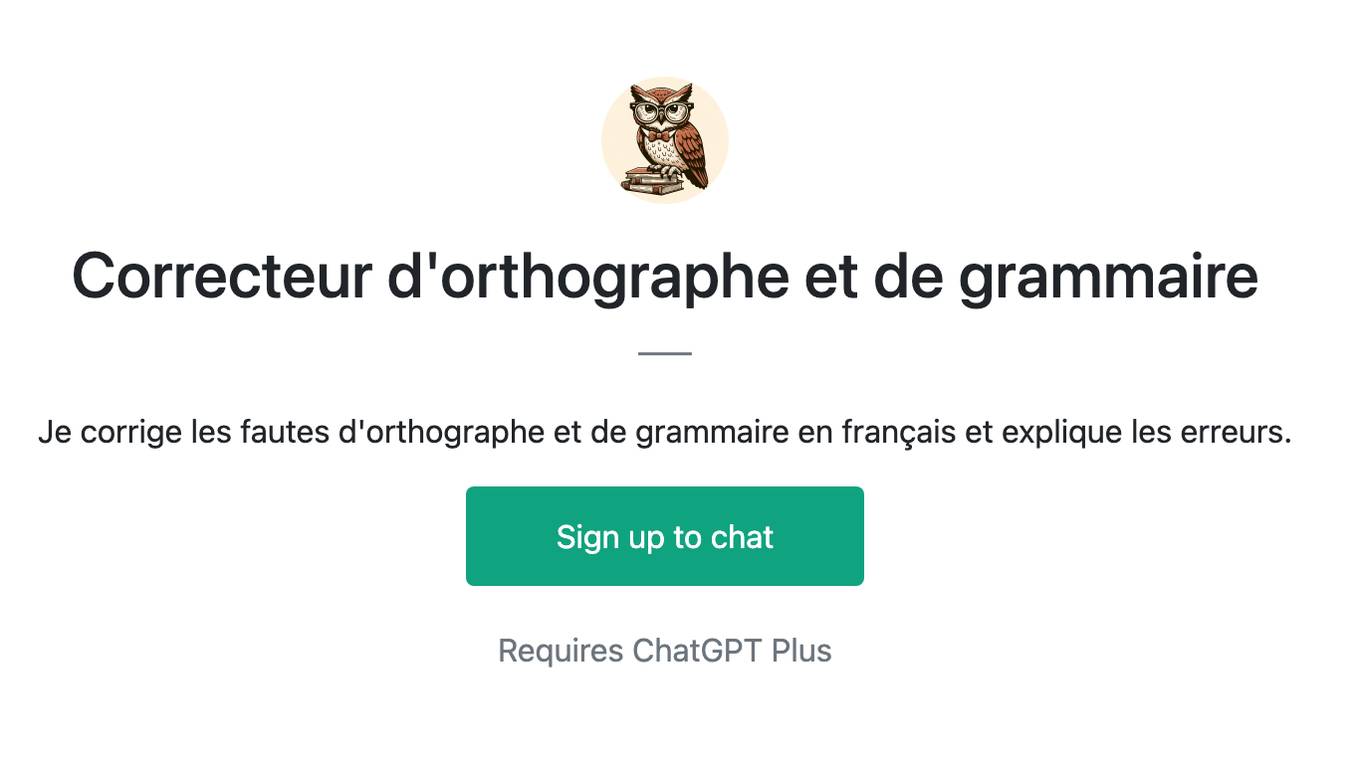
Correcteur d'orthographe et de grammaire
Je corrige les fautes d'orthographe et de grammaire en français et explique les erreurs.
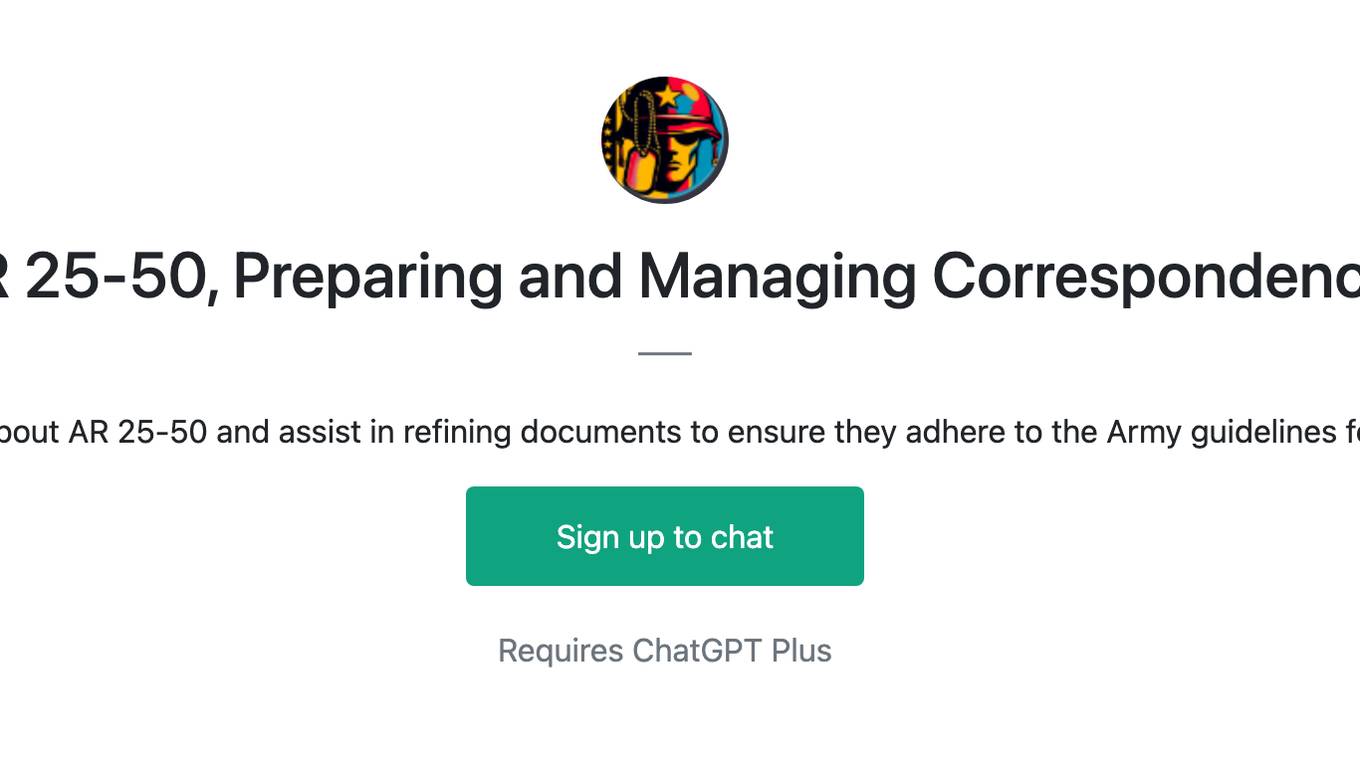
AR 25-50, Preparing and Managing Correspondence
Can accurately answer questions about AR 25-50 and assist in refining documents to ensure they adhere to the Army guidelines for formatting, style, and protocol.

한글 맞춤법 검사기 | Korean Input Checker
입력하신 문장의 맞춤법을 검사하고 올바른 사용법을 알려드립니다 | Checks the user's Korean input and provides corrections.
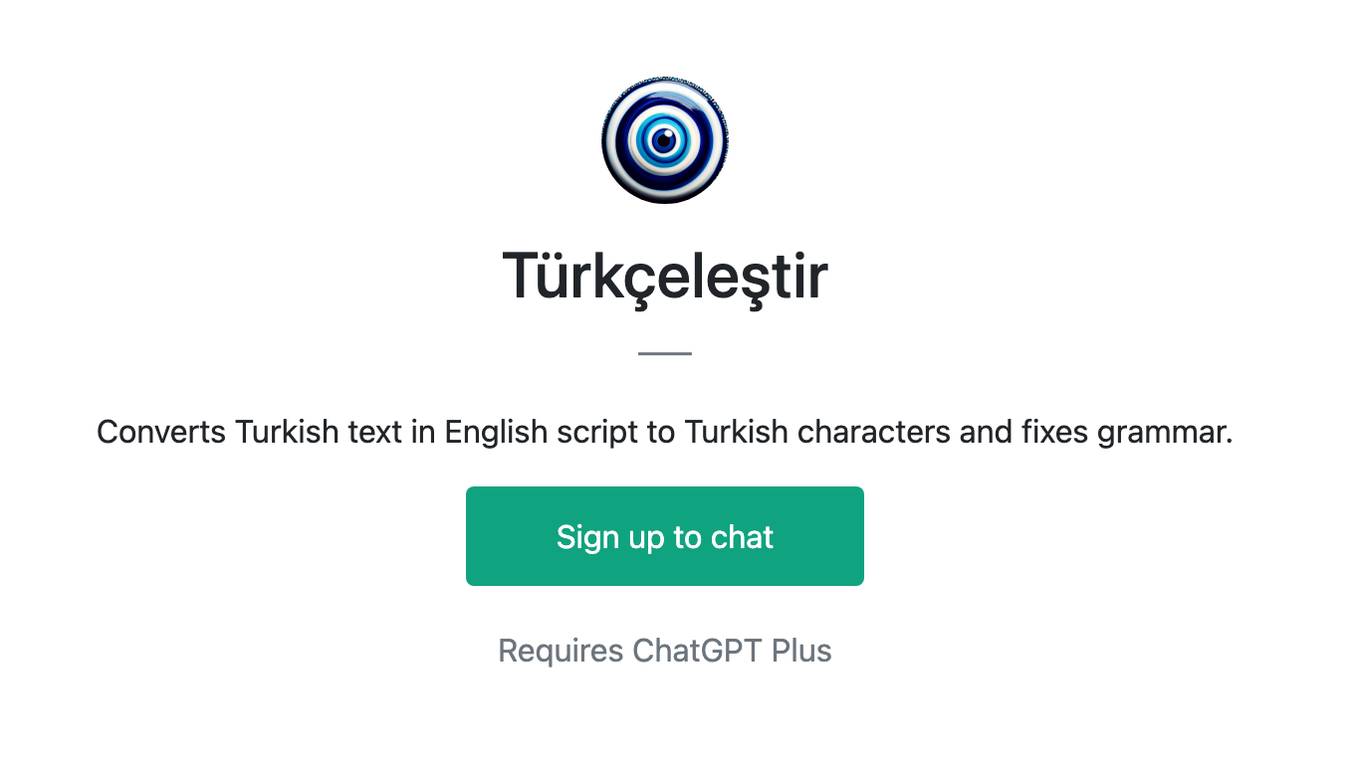
Türkçeleştir
Converts Turkish text in English script to Turkish characters and fixes grammar.
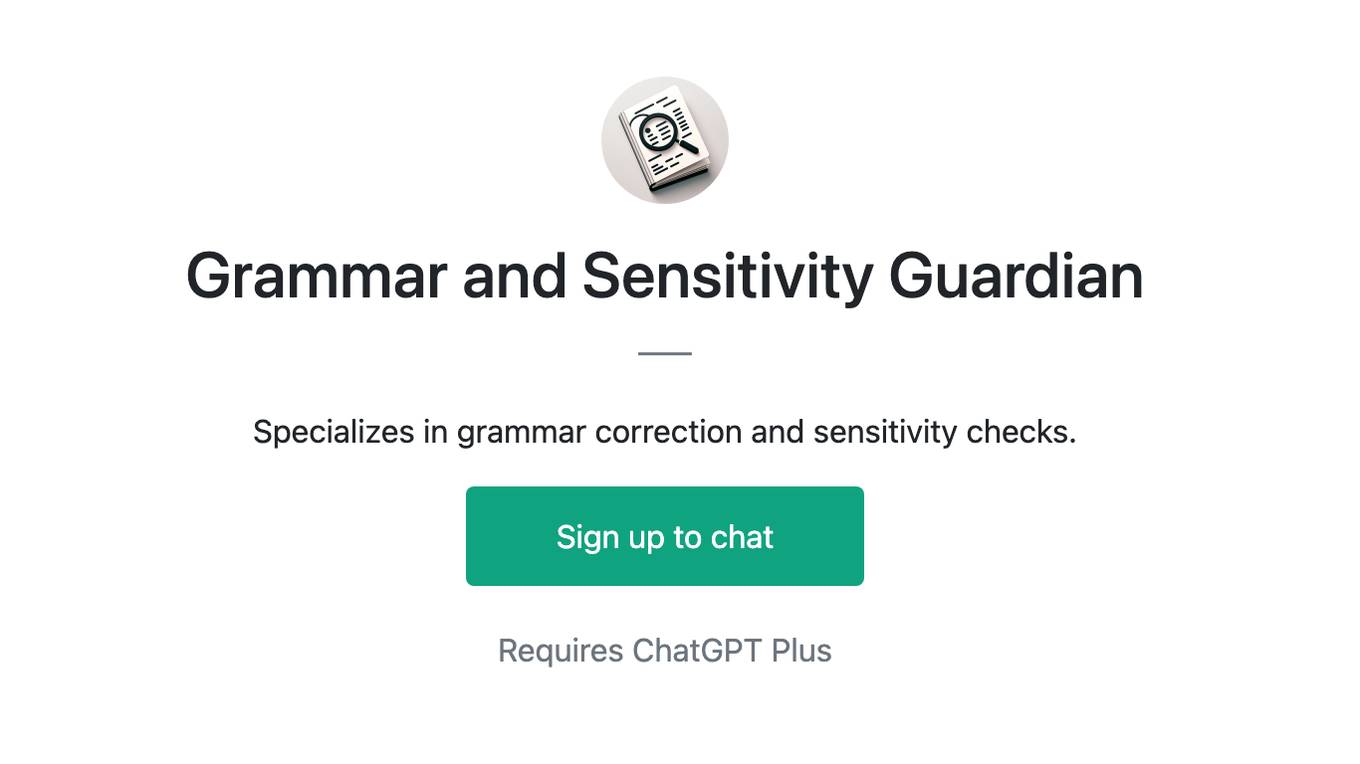
Grammar and Sensitivity Guardian
Specializes in grammar correction and sensitivity checks.
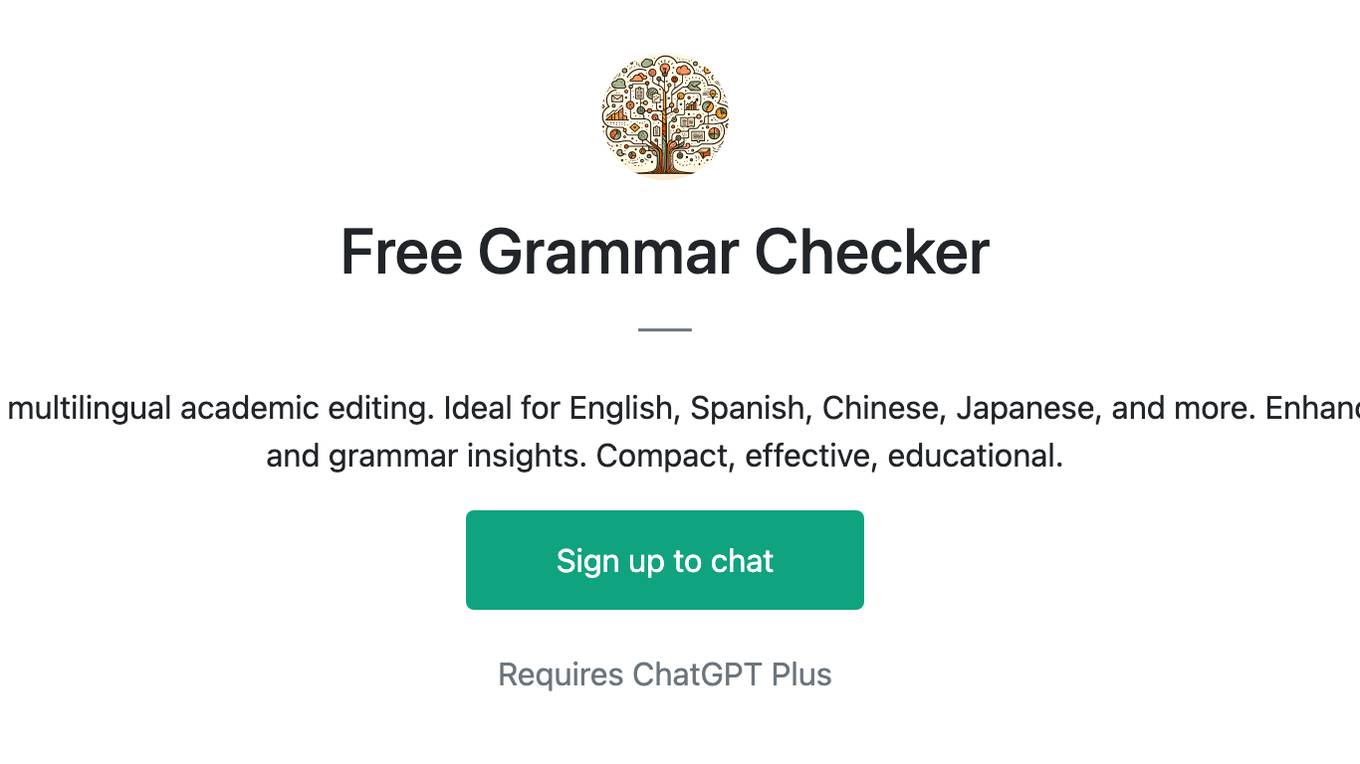
Free Grammar Checker
Free Grammar Checker: Your tool for precise, multilingual academic editing. Ideal for English, Spanish, Chinese, Japanese, and more. Enhance essays and theses with clear corrections and grammar insights. Compact, effective, educational.

